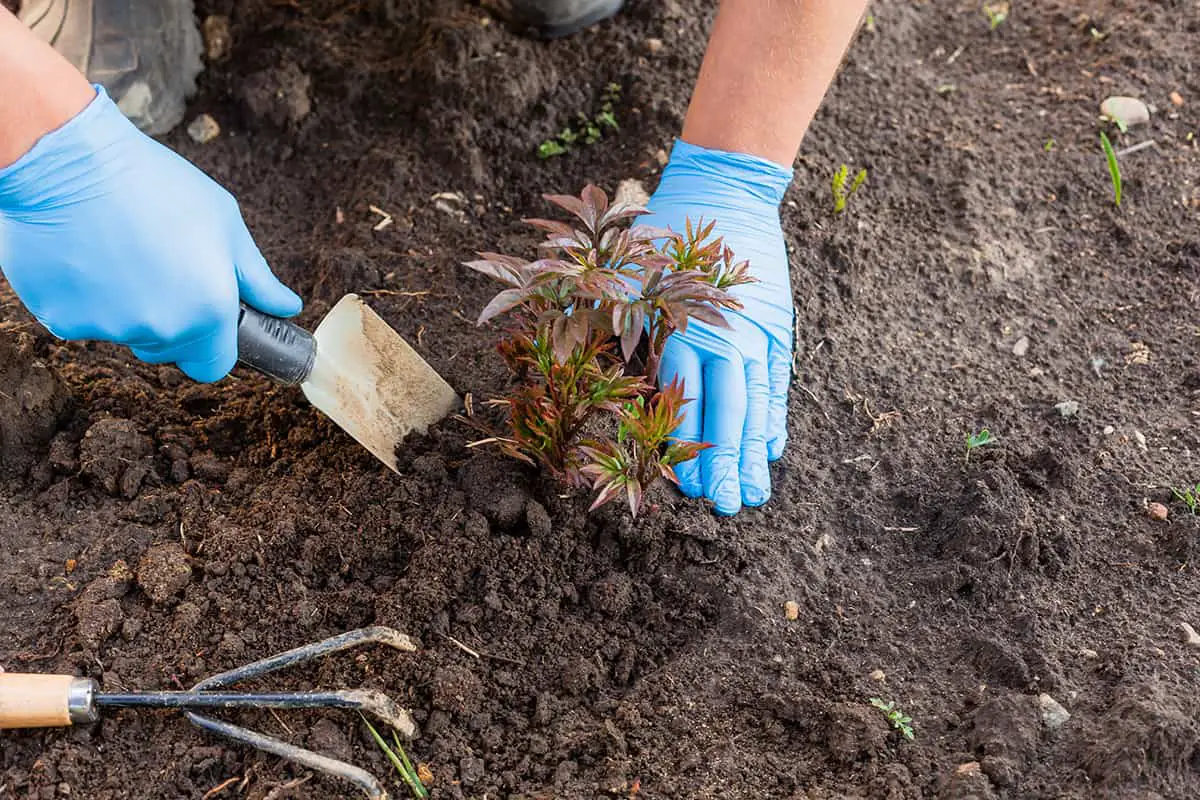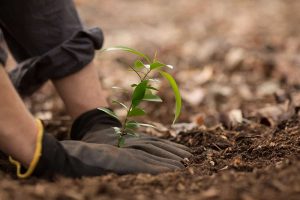Peonies are able to adapt well to a variety of different soil types, however, if you want to give your peonies the best chance of thriving, then you can choose a soil preferred by peonies.
Table of Contents
Best Soils for Peonies
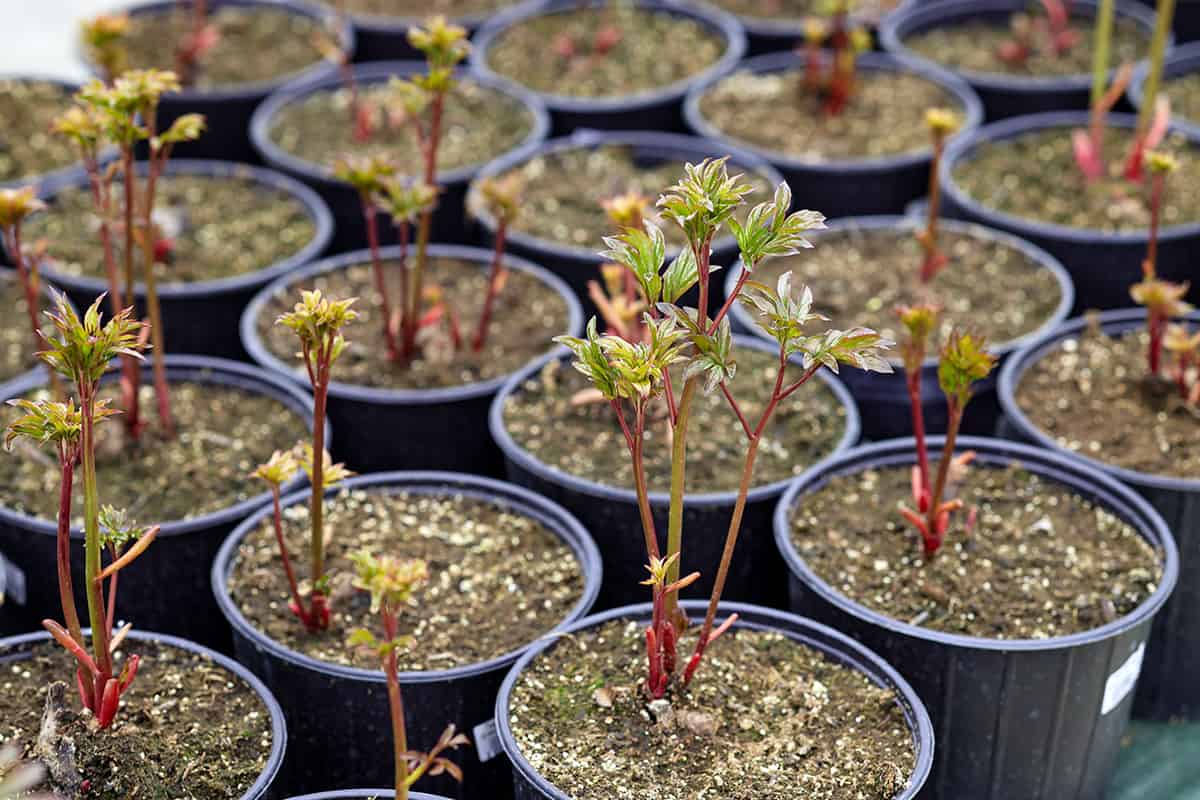
Although peonies are known to grow well in most types of soil, they do have a preference for soils that are fertile, well-draining, and have a neutral pH. If you want to encourage your peony plant to reward you with an abundance of large, impressive flowers, and lush mounds of foliage, then allowing them to grow in suitable soil will get them off to the best possible start.
Fertile
Peonies thrive in soils that are fertile. Typically this means soil that is high in organic content, such as compost. Some soils are naturally fertile, while some are poor in nutrient quality, and these can be amended to suit the needs of the peony if necessary. Fertile soils supply all of the nutrients peonies need to produce an abundance of flowers.
If your plant is not producing as many flowers as it has previously, or if the flowers seem to be getting smaller or not lasting for as long, then this could be an issue with the fertility of the soil.
Well draining
A well-draining soil is not just a preference among peony plants, it is absolutely essential. If you only provide your peony with one thing, it should be well-draining soil. The roots of peonies are susceptible to root rot and therefore they shouldn’t be exposed to continually wet or soggy conditions.
The best way to protect your peony against root rot is to grow it in well-draining soil. Soils that drain well will carry any excess water away from the roots of the plant, in the event of heavy rainfall, or from excessive watering by the grower. Well-draining soils may be naturally present in your garden, but if your soil is not well draining then it can be easily amended to suit the needs of the peony.
Clay soil is a common type of soil that will not drain well unless it is amended. As well as draining away excess moisture, well-draining soil will also retain a small amount of moisture to prevent the roots from completely drying out. Free-draining soils will drain well, however, these types of soils will not retain any moisture, and therefore the plant will struggle to thrive.
Neutral
Peonies can adapt to soils that have acidic or alkaline soils, but they prefer to grow in soils that have a neutral pH. If your soil has a high or low pH, there are ways you can amend it before you plant your peony.
Amending Soils for Peonies
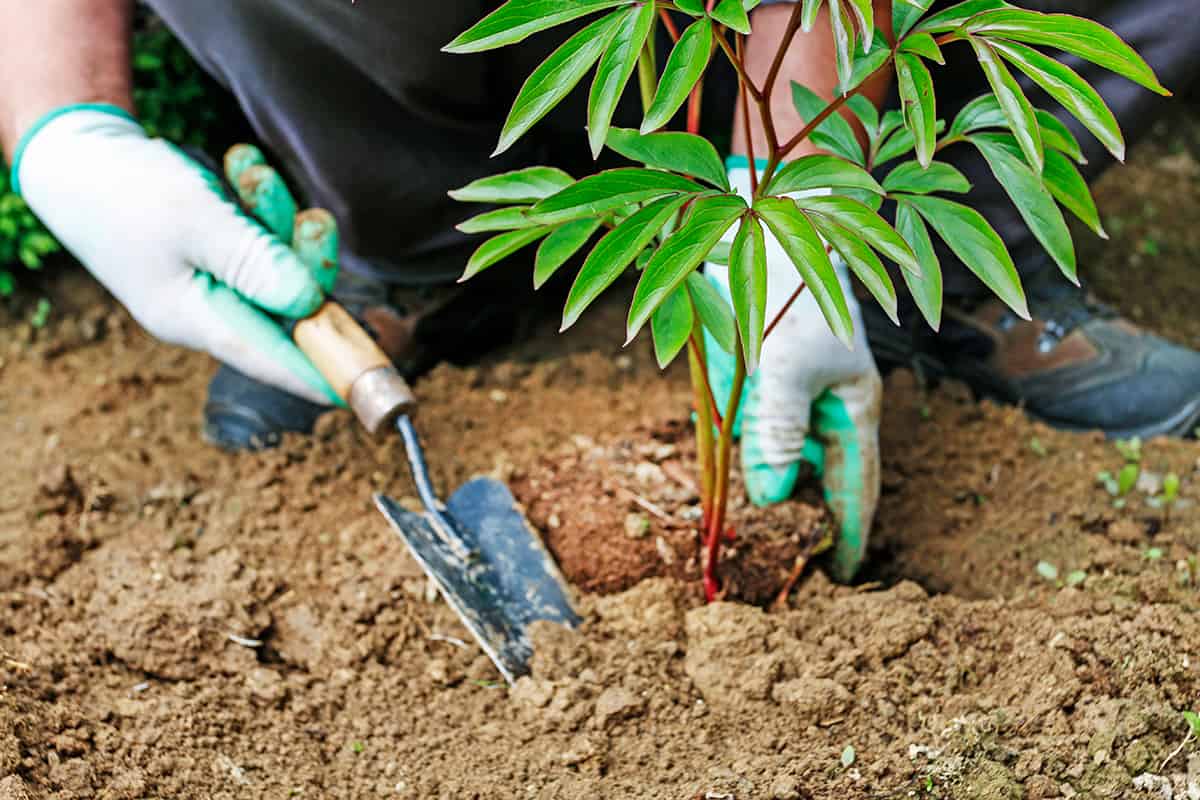
Amending your soil to get the best out of your peonies will be essential in some instances, for example, if your soil does not drain well. In other circumstances, for example, if your soil pH is not neutral, amending it will not be so vital.
Improve water retention
If your soil is gravelly or sandy, then it may drain too quickly. While this is great for the prevention of root rot, it is not so great for plants that require a reasonable amount of moisture for their roots.
Some plants thrive in free-draining soils, such as cacti and succulents, but peonies will not do well in these types of soils because they need consistent moisture. To improve the water retention quality of your soil, add organic content to it.
Humus-rich compost is great for improving moisture retention, and peat moss also works well for this. Work these organic components into the top 6 to 8 inches of the soil before planting the peony. If you still find the soil dries out too quickly, you can add a layer of mulch over the top of your soil. This will aid retention in a different way; by preventing moisture evaporation, rather than aiding with drainage issues.
Improve drainage
Peonies will not survive in soil that does not drain well, so if you have poor draining soil then it is essential that it is amended before peonies are planted. Clay soils commonly have poor drainage because they become easily compacted, and water cannot find any gaps to drain through.
The easiest way to improve the drainage quality of your soil is to add sand, perlite, and gravel. Mix these components as deep into the soil as you are able, ideally to a depth of around 12 inches. The soil will immediately be able to drain better, and you should find when you water your plants that the water seeps into the soil more quickly, rather than sitting on the surface.
Alter pH
You can alter the pH of the soil to help your peonies in various ways. Alkaline soil is notoriously difficult to amend, since lowering soil pH is much more tricky than increasing soil pH. If you wish to lower the pH or your alkaline soil, add iron sulfate or aluminum sulfate to the soil.
Sphagnum peat moss can also help to subtly lower soil pH if it is only marginally alkaline. If your soil is acidic, you can increase the pH by adding limestone. Organic materials will also help to improve the pH of acidic soil over time, so work in organic compost to your soil or use it as topsoil. If you are struggling to alter the pH of your soil, don’t put too much focus on this aspect unless it is noticeably affecting the successful growth of your peonies.
Improve nutrient quality
If your soil is poor in nutrient quality you can alter this in various ways. The quickest way to ensure your peonies get the nutrients they need is by using a fertilizer. Fertilizer can be applied in early spring, and again just before the flowers emerge. You can also improve the nutrient quality of the soil more gradually and more naturally by adding organic compost to the soil.
Compost is rich in nutrients, and when you work this into the soil, it will improve the quality of the soil over time. Compost can also be added as mulch over peony soil in the fall, and when it rains the nutrients will be carried deep into the layers of the soil. This means the nutrients will be available for the rapidly growing roots when the plant enters its period of growth the following spring.
Are Peonies Fussy About Soil?
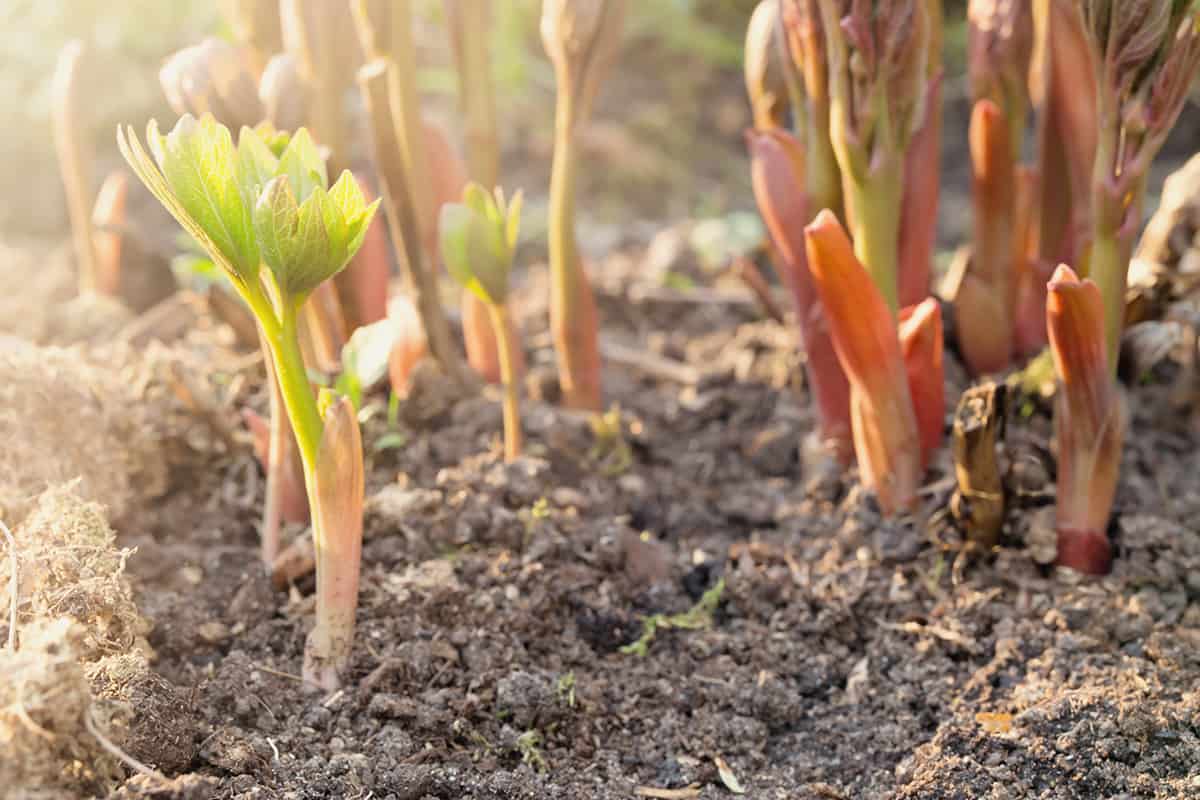
Peonies are not especially fussy about soil type, and they are able to adapt to soils of various different kinds, as long as they are well draining. Although peonies prefer rich soils, they can adapt well even to poor soils, provided the soil drains well.
A soil that is well draining is absolutely essential for peonies, and they will struggle to survive if this need is not met. Peonies do not like to be disturbed once they have settled, so it’s important to plant them in suitable soil at the beginning because they won’t respond well to being moved or having their soil amended further down the line.
